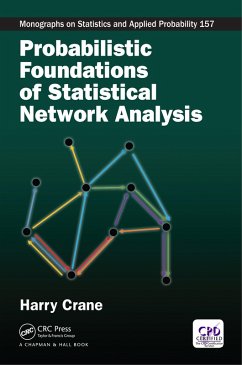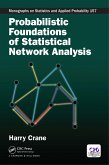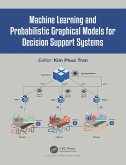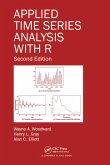The book discusses fundamental considerations for modeling network data of various kinds. The book's major novelty is the emphasis on understanding and building models from first principles, rather than choosing from a list of models that are already available. A main goal of the book is to explain the logic and rationale behind the technical aspects of recent work on network modeling and to discuss how those considerations compare to alternative approaches.
Dieser Download kann aus rechtlichen Gründen nur mit Rechnungsadresse in A, B, BG, CY, CZ, D, DK, EW, E, FIN, F, GR, HR, H, IRL, I, LT, L, LR, M, NL, PL, P, R, S, SLO, SK ausgeliefert werden.









